When is the best time to visit Germany?
The information on this page is based on historical averages and may not reflect current conditions. Please check with local authorities for the latest travel advice.
Read moreThe best time to visit Germany is between May and September. Despite the occasional shower, warm weather and long days make these months the ideal time to explore all that Germany has to offer.
The weather is usually mild and pleasant in the late spring, before average temperatures move towards the twenties and beyond in June, July and August. You’ll get the hottest climate in cities like Frankfurt and Offenbach, while Berlin enjoys warm – if often rainy – days in the summer months. Weather aside, there’s plenty worth celebrating in Germany between May and September. Whether it’s the Hafengeburtstag festival in Hamburg, Karneval in Berlin or Munich’s world-famous Oktoberfest, you’ll find more than enough going on to keep you entertained during your visit here.
More about the best time to visit Germany
Monthly weather and travel tips for Germany
January is the coldest and darkest month in Germany, with short days and temperatures scraping just above the 0°C mark. It’s not all doom and gloom though – the cold climate makes for favourable ski conditions up in the mountains, and is a great excuse for staying indoors and making the most of Germany’s museums, galleries, shops and restaurants.
While not as popular among skiers as some of its next-door neighbours, Germany still has a host of top resorts that should put it on your piste map, including Garmisch-Partenkirchen, the Harz Mountains and Allgäu. The capital won’t be quite as cold as up in the busy slopes, but you’ll still need to wrap up warm – do it in style at the January instalment of Berlin Fashion Week.
4°C
High
-0°C
Low
17 days
Rainfall
The weather across most of Germany in February is ever so slightly warmer than January – but you’ll still need to pack warm clothes to ward off the single-digit temperatures. While it’s particularly chilly near Hamburg and the Baltic Sea coast, the good news is that February is also one of the country’s driest months.
The cold, dry weather and the February school holidays mean the ski slopes and resorts are at their busiest at this time of year. While the ski season is in full swing up in the mountains, there are plenty of parties down in the metropolitan cities too. The ‘Karneval’ period begins in November, but reaches its raucous peak in the final week before Lent. During this time, you’ll see main roads in cities like Cologne, Mainz and Bonn turn into walkways for parades, carnival processions and crowds of fancy-dress-wearing partygoers.
4°C
High
-2°C
Low
14 days
Rainfall
Germany in March can feel a bit chilly to start with, but there’s a fresh, spring feel towards the end of the month. Despite climbing temperatures and some more frequent appearances from the sun, it’s a good idea to pack plenty of warm clothing – maybe some sunglasses too for the occasional bright spring afternoon.
The events calendar and the crowds are pretty quiet in Germany in March, save for a surge of tourists visiting Berlin for the Internationale Tourismus Börse (ITB) – the world’s biggest travel exhibition. Another event worth noting is Hamburg’s Hamburger Dom. Not only is it one of the oldest funfairs in Europe – dating as far back as 1329 – it’s one of the biggest too, so expect roller coasters, rides, food and fun for the whole family.
10°C
High
1°C
Low
14 days
Rainfall
Spring is in full swing in Germany in April. While the sun is in the sky and Germany’s average temperature comes in at around 10°C for the month, weather conditions can still be a little unpredictable. With sunshine one second and rain the next, packing an umbrella and a raincoat is a sensible idea.
Come rain or shine, it’s a busy month for events and activities, with Easter festivities taking place up and down the country. April in Berlin is a time to celebrate the arts, with film events, classical music galas and art gallery open weekends. With Oktoberfest feeling a little too far away for some, cities like Stuttgart and Munich decide to crack open the kegs early during the traditional Spring Festival celebrations. You can keep the lederhosen and dirndls on to mark Maifest’s end of winter festivities, or swap them for witch and warlock costumes for the Halloween-like Walpurgisnacht parades in Harz Mountain villages.
14°C
High
5°C
Low
14 days
Rainfall
Average temperatures hover around the 15°C mark in Germany in May. You’ll get slightly chillier weather up by the North Sea and Baltic Sea coasts, while more central and southerly regions like Berlin and Bavaria help to boost the average temperatures back up. There is the occasional shower too, so best to bring a brolly just in case.
The warmer weather comes just in time for locals who enjoy plenty of public holidays and parties in May, beginning with Labour Day on the first of the month. Berlin gets particularly busy on this day, with street parties and demonstrations taking over much of the city. Later in the month, Berlin channels its inner Rio de Janeiro during the Carnival of Cultures – a four-day celebration of the city’s diversity – while Hamburg puts on concerts, fairs and fireworks during their Hafengeburtstag party. For something a little more low-key, head over to Göttingen to watch the International Handel Festival’s opera performances and classical concerts.
17°C
High
8°C
Low
15 days
Rainfall
June in Germany tends to be warm and sunny, with daylight hours often stretching past 21:00. Locals make the most of the weather by swimming in lakes and north coast seas, so pack swimwear and sun cream if you fancy joining them for a dip. You’ll want to save space in the suitcase for an umbrella too, as June is Germany’s rainiest month.
The events calendar is well warmed up by June too, and it’s a particularly big month for music. There’s something to suit every taste, be it infectious rhythms at Africa Festival in Würzburg, heavy-hitting riffs at Nürburgring’s Rock am Ring or time-honoured classical music at Leipzig’s Bachfest. If none of them get your toes tapping, look out for free concerts in cities across Germany as part of the international Fête de la Musique. Another highlight to look out for is Kieler Woche, a huge week-long sailing festival in Kiel, and the biggest of its kind anywhere.
21°C
High
11°C
Low
15 days
Rainfall
Warm weather and long days make July one of the best times to visit Germany. It’s peak travel season in the country, as locals escape to lakes and coasts to cool off from temperatures that can reach as high as 30°C. The hot climate means there’s a chance of thunderstorms too, so pack a raincoat alongside plenty of shorts, t-shirts and swimwear.
Partywear is also an essential for visits to many German cities in July – particularly with some of Europe’s biggest LGBTQ+ pride parades happening here. These celebrations – known locally as Christopher Street Day – attract hundreds of thousands of people to cities like Berlin, Munich and Cologne. You can join the party elsewhere in Germany too – the city of Coburg comes alive for the Samba Festival, while Hamburg gets its 70s disco outfits on for the Schlagermove street parade. There are also some more chilled events around, like opera concerts during Munich’s Opernfestspiele, classical music at the Schleswig-Holstein Musik Festival, and new trends at Berlin Fashion Week.
24°C
High
14°C
Low
16 days
Rainfall
Average temperatures of around 20°C make August one of the hottest months in Germany. You’ll need to pack clothes to help beat the heat, but a raincoat is a good idea too in case you get caught in the occasional afternoon thunderstorm.
Many locals head up to the northern coastal regions to make the most of August’s summer weather. As well as enjoying the beaches and a cooling Baltic Sea breeze, it’s also worth stopping by Rostock to see fleets of magnificent sailing ships during Hanse Sail. Down south in Stuttgart, the city centre transforms for four days of music, entertainment and food during the Stuttgarter Sommerfest. And come the end of the month, Berlin plays host to Lange Nacht der Museen – a very special evening on which the capital's museums, castles and planetariums open all their halls, terraces and archives to the public.
23°C
High
13°C
Low
15 days
Rainfall
While September technically marks the start of autumn in Germany, the warm weather spills over from the summer months, giving pleasant temperatures and long days. With the sun in the sky and local kids back at school, September is a great time to explore Germany and visit some of the world-famous events happening here.
One of the most well-known events is Oktoberfest – which, despite the slightly confusing name, does in fact begin in September. Munich is the home of the original and the biggest Oktoberfest celebration in the world, but you’ll also find beer festivals – and their accompanying fairgrounds and traditional German food – in cities like Hannover, Stuttgart, Frankfurt and Berlin. If you fancy a break from the beer tents, the (hopefully) sunny September weather should provide perfect conditions for watching the Berlin Marathon.
18°C
High
10°C
Low
13 days
Rainfall
The weather in Germany in October can be a little unpredictable, but in general it stays fairly mild. You’ll still get some sunny days, but a cool and crisp climate means you’ll need a couple of layers when getting out and about in Germany. If you want to layer up like the locals, don your dirndl or lederhosen and see out the end of September’s Oktoberfest celebrations in style.
There’s still plenty to do in Germany once the beer-filled festivities finish. Munich packs up the beer tents and stows away the steins to make way for the city’s annual marathon in early or mid-October. Over in Frankfurt, literature lovers can indulge at the largest book fair in the world, while Berlin is the place to see famous landmarks illuminated during the Festival of Lights.
14°C
High
7°C
Low
14 days
Rainfall
You’ll get early signs of winter in November in Germany. The average temperature drops to single digits, and the weather tends to be cold, wet and windy. The grey skies do have their benefits though – most of the earlier months’ crowds have left the country by November, so you can make the most of shorter queues for some of Germany’s top tourist attractions.
Between visits to sites like Brandenburg Gate, the Reichstag and Berlin’s Museum Island, there are a couple of events to check out too if you’re in the area. JazzFest Berlin puts on a show with live concerts, films and talks, while later in November, Munich hosts the Tollwood Winter Festival – a cultural gathering with music and arts, food and markets, and an eco-friendly focus.
9°C
High
4°C
Low
15 days
Rainfall
The winter chill sets in come December in Germany. Pack warm for average temperatures hovering just above the zero degree mark – or below it in some of the Alpine regions. If you’re dreaming of a white Christmas, there’s potential for some snow in Bavaria in December, with chances increasing the higher you move up into the mountains.
Despite the cold weather outside, crowds flock to famous Christmas markets all over the country. Town squares are taken over by rustic wooden huts, selling traditional Christmas food, handcrafted gifts and plenty of warming mulled wine. Christkindlesmarkt in Nuremberg, Striezelmarkt in Dresden and Gendarmenmarkt in Berlin are among some of the biggest and best Christmas markets in Europe. Once you’ve had your fill of Christmas festivities, get set to celebrate New Year’s Eve – known locally as Silvester – with fireworks and parties all across Germany.
6°C
High
2°C
Low
17 days
Rainfall
Weather and temperature in Germany
The best weather in Germany comes between May and September. The temperature and conditions change during this time, but in general you can look forward to a warm climate and long days – particularly in July and August, the two hottest months in Germany. Temperatures in cities like Berlin and Frankfurt can get up into the low thirties during this time. May and June offer milder climates made for exploring the great outdoors, while September remains surprisingly warm as summer turns into autumn. The weather forecast between May and September should make for pleasant reading, but an umbrella is a good idea too in case of spring showers and summer thunderstorms.
| Jan | Feb | Mar | Apr | May | Jun | Jul | Aug | Sept | Oct | Nov | Dec | ||
|---|---|---|---|---|---|---|---|---|---|---|---|---|---|
| Berlin | High | 3°C | 4°C | 9°C | 15°C | 19°C | 22°C | 26°C | 25°C | 19°C | 14°C | 9°C | 6°C |
| Low | -1°C | -3°C | 0°C | 4°C | 8°C | 11°C | 14°C | 13°C | 10°C | 6°C | 3°C | 1°C | |
| Rainfall | 17 days | 14 days | 15 days | 14 days | 15 days | 15 days | 16 days | 15 days | 14 days | 15 days | 16 days | 17 days | |
| Munich | High | 4°C | 2°C | 10°C | 14°C | 17°C | 21°C | 24°C | 24°C | 18°C | 13°C | 8°C | 6°C |
| Low | -1°C | -5°C | -0°C | 4°C | 8°C | 11°C | 14°C | 13°C | 9°C | 6°C | 2°C | -1°C | |
| Rainfall | 17 days | 14 days | 15 days | 14 days | 15 days | 15 days | 16 days | 15 days | 14 days | 15 days | 16 days | 17 days | |
| Hamburg | High | 4°C | 4°C | 9°C | 13°C | 17°C | 19°C | 23°C | 22°C | 18°C | 14°C | 9°C | 6°C |
| Low | -0°C | -1°C | 1°C | 3°C | 8°C | 10°C | 13°C | 12°C | 10°C | 7°C | 4°C | 2°C | |
| Rainfall | 17 days | 14 days | 15 days | 14 days | 15 days | 15 days | 16 days | 15 days | 14 days | 15 days | 16 days | 17 days | |
| Frankfurt/Main | High | 5°C | 4°C | 11°C | 15°C | 18°C | 22°C | 26°C | 24°C | 19°C | 14°C | 9°C | 7°C |
| Low | 1°C | -1°C | 2°C | 6°C | 9°C | 12°C | 15°C | 14°C | 11°C | 8°C | 4°C | 2°C | |
| Rainfall | 17 days | 14 days | 15 days | 14 days | 15 days | 15 days | 16 days | 15 days | 14 days | 15 days | 16 days | 17 days | |
| Cologne | High | 6°C | 5°C | 10°C | 14°C | 17°C | 20°C | 23°C | 23°C | 18°C | 15°C | 10°C | 8°C |
| Low | 1°C | -1°C | 2°C | 5°C | 8°C | 11°C | 14°C | 13°C | 10°C | 8°C | 5°C | 3°C | |
| Rainfall | 17 days | 14 days | 15 days | 14 days | 15 days | 15 days | 16 days | 15 days | 14 days | 15 days | 16 days | 17 days | |
| Düsseldorf | High | 6°C | 5°C | 11°C | 15°C | 18°C | 21°C | 24°C | 23°C | 19°C | 15°C | 10°C | 8°C |
| Low | 2°C | -0°C | 2°C | 5°C | 9°C | 11°C | 15°C | 14°C | 11°C | 8°C | 5°C | 4°C | |
| Rainfall | 17 days | 14 days | 15 days | 14 days | 15 days | 15 days | 16 days | 15 days | 14 days | 15 days | 16 days | 17 days |
Weather data provided by Forecast.io
Cost of stay in Germany
Want to travel smart? Here, you can check out the average cost of accommodation per night in Germany.
-
0
43
86
129
172
- £97 Jan
- £96 Feb
- £102 Mar
- £107 Apr
- £114 May
- £115 Jun
- £109 Jul
- £108 Aug
- £121 Sept
- £113 Oct
- £106 Nov
- £110 Dec
-
0
43
86
129
172
- £78 Jan
- £81 Feb
- £83 Mar
- £87 Apr
- £95 May
- £97 Jun
- £105 Jul
- £104 Aug
- £96 Sept
- £93 Oct
- £86 Nov
- £100 Dec
-
0
43
86
129
172
- £35 Jan
- £37 Feb
- £41 Mar
- £46 Apr
- £52 May
- £53 Jun
- £52 Jul
- £49 Aug
- £57 Sept
- £47 Oct
- £41 Nov
- £48 Dec
-
0
43
86
129
172
- £110 Jan
- £108 Feb
- £110 Mar
- £111 Apr
- £126 May
- £126 Jun
- £141 Jul
- £137 Aug
- £123 Sept
- £121 Oct
- £112 Nov
- £147 Dec
-
0
43
86
129
172
- £74 Jan
- £75 Feb
- £79 Mar
- £80 Apr
- £84 May
- £86 Jun
- £88 Jul
- £89 Aug
- £85 Sept
- £83 Oct
- £76 Nov
- £85 Dec
The best places to visit in Germany
Check out some of the most popular cities, places to visit and things to do in Germany!

Berlin
Popular in June
History, Sightseeing, Museums
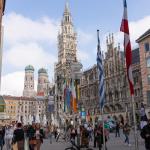
Munich
Popular in August
City Walks, Beer, Old Town

Hamburg
Popular in July
Harbour, City Walks, Sightseeing
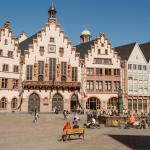
Frankfurt/Main
Popular in July
City Walks, Shopping, Old Town

Cologne
Popular in December
Cathedral, Old Town, City Walks
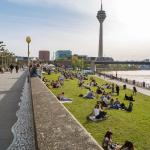
Düsseldorf
Popular in December
Old Town, Shopping, City Walks
Ready to book a trip to Germany?
Enter your dates to find the perfect place to stay in Germany!
What other travellers say about their holiday in Germany
-
The Friedrichsbad Spa - Baden-Baden it's a place not to miss...!!!
Mateus Baden-Baden January 2024 -
Hamburg is an attractive city, more characterful than many north German industrial cities (for which allied bombing and unimaginative post-war rebuilding is heavily responsible).
STUART Hamburg January 2024 -
If you love walking, climbing and outdoor activities- this part of Germany offers you all of this ... all in one spot and one can truly relax and recharge ones batteries...
Leienfels January 2024 -
We love Munich - great shopping, great food and lovely atmosphere!
COLLEEN Munich January 2024 -
Great public transportation. Easy enough to get to places of interest. Found the people of Hamburg very friendly and helpful, many speaking English. The Town Hall at Rathaus and shopping mall there, are places to visit.
Thomson Hamburg January 2024 -
Old Frankfurt beautiful. STAY AWAY from area by Central Station OPEN Drug usage
Ger Frankfurt/Main January 2024 -
Very nice and real recommendation for the last weekend every January in Wuerzburg is the international film festival!
Dirk Würzburg January 2024
-
Small cozy town that really seems beautiful. I find the old town and the castle one of sweet spots and if you rent a car, you can get to some really nice places around there. Town is clean and peaceful. It could be better lit at night.
Miloš Braunschweig February 2024 -
The Berlin Wall is a sobering reminder of the hyper-charged postwar atmosphere, and yet the graffiti art that now covers its remnants has become symbolic of social progress. Historical places. Excellent
Jaimon Berlin February 2024 -
Hamburg is a very interesting city with lots to do and see, the docks area have "Miniature World" (Around the World Model railway) located there and is well worth a visit (book online in advance if poss) but note you will need quite a bit of time there as its very big but will keep you looking.
Hamburg February 2024 -
Great public transport via the U Bahn and S Bahn. A spotlessly clean and safe city. Lovely food, coffee and beer to suit all budgets. Unique architectural styles in the old town. Wunderbar! Bierwerk is a must see place in the aldstadt near the river.
Gerry Nürnberg February 2024 -
One of the finest cities in Europe! Only idiots dislike Hamburg! The city is a mix of architecture, history, culture, and environmental consciousness.
Hamburg February 2024 -
űzleti út jót ettünk ittunk 'sz jöccakát!:)
Regensburg February 2024 -
Die Gegend hat sehr viel zu bieten. Besonders die Wanderung um den See am Schloss Meseberg hat uns gefalllen, auch das Naturschutzgebiet Kleine Schorfheide ist sehr schön. Die Städtchen Lindow, Templin und Oranienburg sind auch einen Ausflug wert!
Tina Zehdenick February 2024
-
Fascinating history; plenty to see & do; cool vibe; friendly locals; authentic cuisine & restaurants
Denise Berlin March 2024 -
Very comfortable and clean. Restaurant is good. No coffee in rooms and would be appreciated if you have to leave early or miss breakfast. Pleasant staff and great location.
PETER Ludwigsburg March 2024 -
I love Dresden, like a picture. I would like to travel Dresden again.
Dresden March 2024 -
Just walking around. The cafés, Memorial for the jydes, Brandenburger Tor, museum for naturkünde and especially the Spy museum
Søren Berlin March 2024 -
Great clean city with lots of grocery stores and efficient public transport system. Safe and enjoyable. Lots to see and do. Dachau was a somber highlight.
John Munich March 2024 -
Came back after 40 years to bring my son for his birthday whom was born here, we had a blast and our father & son trip
Würzburg March 2024 -
Beautiful views and walks specially at night. Very safe and peaceful.
Heidelberg March 2024
-
I liked the city center the most and loved watching the young people walk by
Leipzig April 2024 -
Berlin has fantastic transportation. The city is very clean and green in the springtime. We loved the Berlin Wall, Sanssouci Palace gardens, Magic bus tour, Reichstag building, Doner Kebabs, street art, etc. It’s a great city to take kids of all ages.
Berlin April 2024 -
Everything! Easily my favourite city to visit in Germany so far for its sheer beauty. Amazingly I got last minute tickets to the Semperoper (the opera) to watch “The Magic Flute”. The architecture, the food, the people are what make Dresden the special place it is. The Hop on Hop off bus tours are great as they take you to the suburbs in the hills that you would otherwise not get a chance to see. Great views and a good cafe in one suburb to have a coffee.
Mihael Dresden April 2024 -
SCHWANGAU IS JUST A VILLAGE WITH A BEER HALL AND A PIZZARIA AND A COUPLE OF OTHER RESTAURANTS AND PUBS: YOU GO FOR THE TWO CASTLES- HOHAN SCHWANGAU (MY FAVOURITE) AND NEUSCHWANSTEIN (THE FAMOUS ONE) YOU REALLY SHOULD PRE-BOOK FOR BOTH. THEY ARE VERY BUSY IN PEAK SESON. THERE ARE ALSO GREAT VIEWS OF THE BAVARIAN ALPS ( AND HIKING IF YOU ARE KEEN) AND THE LAKE TO STROLL AROUND. NICE NATURE, BEST ENJOYED WITH A RELAXING ICE-CREAM OR BEER IN THE BEER GARDENS... WHATS NOT TO LOVE?
Schwangau April 2024 -
I travel to Hamburg every year for a convention, so my purpose for visiting is not tourism in the first instance. However, over time I have been able to visit many of Hamburg's cultural attractions and can highly recommend it as a tourist destination. Public transport is efficient and punctual, and everywhere is easily accessible. Visit Hamburg - it's a great city!
Robert Hamburg April 2024 -
Old town is the place to be. Beautiful architecture, history and it really feels like you are in Pinocchio’s fairytale village. Worth visiting and you don’t need more than 2-3 nights to fully explore it. And you can walk everywhere.
Zana Rothenburg ob der Tauber April 2024 -
An amazing but small city, with an old town (Altstadt) containing many historic and stylish properties. Wetzlar itself has an eclectic mix of building styles, shops and businesses. Home to Leica, Zeiss, Bosch, Buderus.......
Wetzlar April 2024
-
Cologne is a rich blend of historical listed buildings, brightly coloured 'Hansel and Gretel' homes and more contemporary accommodation. Cologne Cathedral, the Hard Rock Cafe and Peters Brauhaus! It is easy to get around Cologne especially by train or tram. Just be aware that pickpockets operate in the tourist areas (the same as most cities) other than that it felt like a safe environment.
WENDY Cologne May 2023 -
I needed a hotel close to the airport that was affordable. With restaurants nearby. It met all my needs. And free parking as opposed to other places in the area charging 24 euro for the car
Kelsterbach May 2023 -
Parking is free and available but be sure to park sensibly so not to block any other cars and not to be blocked in. There are lots of camper vans and sites near the lake and I would consider the option myself on future trips.
Richard Wunstorf May 2023 -
There is an old castle and a beautifel park near it there
Altdöbern May 2023 -
It was a good base for getting around on the OEG tramway to Mannheim. I enjoyed the funicular railway to the top of the mountain.
Heidelberg May 2023
-
Easy to get around, lots to see and do. Highlight were the museums and the river walks. The old town was great. MyZeil mall also good. Some parts of the city close to the Main HBf train satiation are very dirty and dodgy.
Joy Frankfurt/Main June 2023 -
A very historic town from Roman times and on the border at the edge of the Roman empire known as the “Limes” Most of the old town has very well preserved ancient buildings. It is directly on the river Main. There are loads pf restaurants and places to people watch as you enjoy a drink or ice cream. Easy access to the A3 Autobahn, 30km from Frankfurt airport and the City of Frankfurt. Other interesting towns such as Miltenberg and Aschaffenburg nearby.
Martyn Seligenstadt June 2023 -
Very pleasant little town; our boat trip on the ferry was absolutely beautiful. Very clean town.
Patrick Starnberg June 2023 -
Fascinating architecture. Memorable riverside walks and parks.A wonderful place to visit.
Stuart Dresden June 2023 -
It serves the purpose a simple shower and rest. The most problems is people really don't respect each other at sleeping hours. Zero!!! The staff is always excellent!
Soledad Hamburg June 2023 -
Food, shopping, monuments, and museums. Lots to do and see!
Berlin June 2023 -
Interesting city. You must walk across the bridges and visit the amazing UNESCO site Prince Bishops Residence.
Würzburg June 2023
-
I would thoroughly recommend doing a bicycle tour of the city during your first day or so as it orientated us and gave us a feel for the sites we wanted to re-visit.
Jon Berlin July 2023 -
What a quaint and beautiful place. Meander through the streets and enjoy the ambience and history still well intact.
Alison Dinkelsbühl July 2023 -
A very beautiful city. Must be visited at least once in a lifetime.
Friedberg July 2023 -
We ate at the Gaffel Haus (next door to the Maritim Hotel). It had good food and friendly staff.
Berlin July 2023 -
Very nice surroundings. Very nice open air swimming pool in town. All facilities needed close by.
Zell am Harmersbach July 2023
-
Easy and cheap public transport system. Fabulous architecture. Great shops. Great food, (we’re vegetarian and there was a lot of choice,) great bars. The most amazing park, with super cafès. Look up The Drip Bar - amazing cocktails.
Hamburg August 2023 -
Went to a food festival, also Gamescom, drove to dusseldorf for the old city and markets, enjoyed a lovely nature park that had boars, a brilliant couple of days staying at cologne <3
Karí Cologne August 2023 -
This is a beautiful place with excellent hiking from the door. Typical of the Black Forest there is a lovely themed walk which starts opposite the hotel. We saw lots of wild deer and enjoyed the very pretty stream which runs down the valley.
Rachel Wolfach August 2023 -
Couple of nice restaurants. Great place to start some hikes into the beautiful surrounding nature.
Esther Kipfenberg August 2023 -
Good transport system, castle amazing. Take town train ride.
Stuart Nürnberg August 2023 -
Just amazing x loved every second x seriously please visit this place it’s just beautiful x
Lynn Traben-Trarbach August 2023 -
It is a place to connect with nature, you sleep early and wake up with sunshine, nice area to breath, walk, cycle and hike. I dont recommend this place for people who likes to do party and make noises as the sleep time is 10pm and you are not allowed to make party.
golnar Simmerath August 2023
-
Stayed in Speyer several times - the Technical museums in Speyer and Sinsheim are excellent. Stuttgart is not too far away (Mercedes and Porsche Museums). Speyer has a lovely cathedral and centre is great for a walk (nice bars and ice cream shops).
Robert Speyer September 2023 -
The lake is beautiful with many locations for swimming, many hikes start right from here without having to get into a car, the tourist board gives out free cards for use of tram and bus and some museums and castles as well as a free one-hour boat tour of part of the lake.
Brigitte Bodman-Ludwigshafen September 2023 -
Beautiful small town with lovely pedestrian zone. Lots of great shopping and wonderful restaurants.
Audrey Füssen September 2023 -
Given that our goal was to see Pergamon museum before it closes, I rate our trip as successful and truly impressive. Berlin is very beautiful city and it offers abundance of history.
Sabine Berlin September 2023 -
Old town full of character. Many opportunities for leisure activities, theatre, concerts, casino, walking, tours of the Black Forest, Caracalla and Friedrichs Bad. A good selection of cafes/restaurants, and many shopping opportunities.
Mary Baden-Baden September 2023 -
The town is just stunning as is the architecture, we visited a place called Burger park and Miniature land which is excellent with a great little grill house on it. But the best part of the trip was going on the Brockan Bahn railway, pulled by vintage steam trains all the way up the mountain, That was amazing.
Wernigerode September 2023
-
One of the worlds truly great cities. So easy to get around and see all that history.
Berlin October 2023 -
Sweet city situated on the Rhine River across from Mannheim, and about 45 minutes away from Frankfurt when using public transport. It has a few casual cafes and restaurants. It also has one medium-sized mall. Walking on the Rhine river corniche was a highlight. Friendly population with a lot of foreigners newly (relatively) residing in the area. Not many people speak English.
Ludwigshafen am Rhein October 2023 -
Spectacular inhalatorium and nice Elvis Presley memorabila in the street
Jozef Bad Nauheim October 2023 -
Very interesting historical city with plenty to see and do. Good restaurants with plenty of food options and all of the people we met were happy and helpful. A great location for a short break
Stephen Berlin October 2023 -
The park is lovely to wander around, with grand palaces, beautiful gardens and art galleries to visit. The town centre and Dutch Quarter are worth visiting and also the Cecilienhof where the Potsdam Conference is definitely worth seeing.
joanna Potsdam October 2023 -
Beds comfy and cosy bed linen. Good quality breakfast with good selection available. Helpful staff. Just missing drink making facilities in room.
Hannah Aachen October 2023 -
Beautiful old town with a castle on the hill and steam trains that make young and old hearts beat stronger
Tamas Wernigerode October 2023
-
Miasto ładne, bardzo różnorodne, dobrze skomunikowane. Ale liczba narkomanów i bezdomnych koczująca w okolicach dworca głównego była zatrważająca.
Frankfurt/Main November 2023 -
Good place to visit for beer and food and shopping.
Düsseldorf November 2023 -
It is the second time and as we had stayed at a different Hotel previously our experience of Dötlingen has been good.
Paul Dötlingen November 2023 -
A wonderful, historic and ecclecticlly artsy city. Amazing stories from the middle ages through the cold war with museums and super interesting sites. Art permeates the city life. Authentic food from all over the world is everywhere. Flay and very walkable but public transport is great as well.
Paul Berlin November 2023 -
The city is excellent for shopping and sightseeing. The public transport is most extensive and clean
Andrew Düsseldorf November 2023 -
Regensburg is a wonderful medieval town. The entire old town is easily walkable and there are so many ancient homes/buildings to see. Get a local guide so you don’t walk right past something incredible without realizing.
Larry Regensburg November 2023 -
Very beautiful old city with lovely castle and view on mountains.
Nataliia Wernigerode November 2023
-
Beautiful and clean. Unfortunately we didn't have enough time to explore
joanna Göttingen December 2023 -
Very clean and nice city. Plenty of shops and food. Good public transport. Not much historic sights due to war. Friendly people.
frances Berlin December 2023 -
Very clean and stylish apartment. Happy to stay there.
Ka Man Dernbach December 2023 -
It is close to Dusseldorf and other areas of Northrhein Westphallen. Easy access to major roads and nice forests for walks in the vicinity.
Grab Ratingen December 2023 -
Again: not as attractive as Paris, London, Rome, Barcelona, Budapest, Praque, but still worth the visit - especially in advent times with lots of Christmas markets, concerts and other events.
Berlin December 2023 -
People transport system ease of getting around the city. We ate in numerous restaurants and coffee shops
Bibby Hamburg December 2023 -
We went back to Werl for a memory visit because in the 80’s we lived there whilst in the army so it was lovely to see it again. Not much to do in Werl but if you farther afield by bus or train , you see a lot more. We were only there for 3 days.
Elaine Werl December 2023
More inspiration for your Germany trip
-
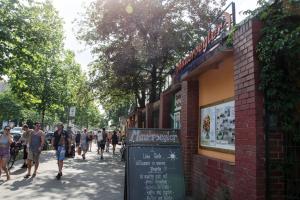
Get closer to the culture
Here are the must-know German phrases for you to blend in like a local.
-

Heather and Jan's favourite things to do in Berlin
Take a hot rod city tour, enjoy delicious handmade sausages, and be just like a local.
-

Top 10 hotels with the best WiFi in Berlin
Berlin may be the tech capital of Europe, but how’s the WiFi?
-

Berlin Beer: A Rebirth
Amandine Hach celebrates Berlin's growing beer scene.
-

Germany’s 7 most interesting wine destinations
Sip your way through the best of Deutschland’s half-timbered wine towns.
-

Destination inspiration: Burg, Germany
Indulge in unspoiled nature and supreme relaxation in this old and mythical forest.
-

A seasonal guide to Munich
With each season showing a new side to the city, there’s never a bad time to visit Munich.
-

Germany’s top 5 volcanic destinations
Embrace the unexpected and take a tour of Germany’s volcanoes.
-

The top 6 Oktoberfest hotels
Where to stay during Munich’s famous beer and folk festival.
-

Destination Inspiration: Frankfurt, Germany
Germany’s business hub shows off its leisurely side with a mix of culture and history.
-

Castle hunting in Germany
Cinematic inspiration, mysterious deaths, ghosts and more.
-

Destination inspiration: Dresden, Germany
History buffs will fall for this fascinating Saxon city.
-

Destination Inspiration: Füssen, Germany
With castles, lakes and mountains, this scenic Bavarian town is a fairy tale come true.
-

Best beer towns in Germany
Experience the best of German beer culture in these five cities.
-

Berlin’s 7 most intriguing cinemas
Including a cinema with repurposed aeroplane seats and a tiny arthouse movie theatre.
-

5 of the swankiest apartments in Berlin
Stay local in the city’s artistic heart.
-

Where to stay near Berlin’s Brandenburg Gate
Stay close to Berlin’s most celebrated gate at these 4 nearby apartments.
-

Where to stay near Berlin's Alexanderplatz
5 modern apartments near Berlin’s liveliest public square.
-

Where to stay near Berlin's Potsdamer Platz
4 gorgeous apartments right around the corner from Berlin’s historic square.
-
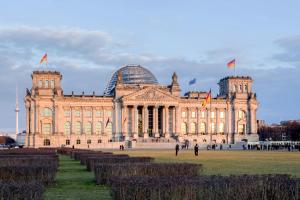
Where to stay near Berlin's Reichstag
5 luxury apartments within walking distance of Germany’s historic Parliament building.
-
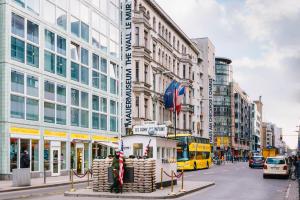
Where to stay near Berlin’s Checkpoint Charlie
5 self-catering stays close to the former Berlin Wall border crossing.
-
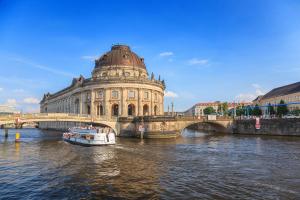
Where to stay near Berlin’s Museum Island
4 apartments within 15 minutes of the capital’s prestigious museum complex.
-

A local guide to travelling in Germany
Germans pick their favourite places to travel in Germany.
-

6 gorgeous campsites in Germany
Lantern-lit dinners on your safari tent verandah, or camp by a lake with a sandy beach.
-

Germany’s best pet-friendly properties
Germany’s national parks and forests make it an idyllic destination for pet-owners.
-

Germany’s 5 most beautiful islands
Five of Germany's best-kept secrets, according to global travellers.
-

Germany's most romantic destinations
Wander through hushed towns, across cobbled stone bridges and past tumbledown castles.
-

Plan a Brothers Grimm route through Germany
If you go out in the woods tonight, stop by Snow White's cottage and Rapunzel's tower.
-

5 enchanting German forest holidays
Fairy tales, foraging, witches and waterfalls await.
-

Germany's 5 best family-friendly beaches
Once the weather warms up, head to one of Germany's delightful family-friendly beaches.
-

The best family-friendly hiking in Germany
Featuring easy to hard family hikes, perfect for all levels and ages.
-

5 of Germany's most beautiful beaches
Stroll along empty island sands or linger by lakes for hypnotic mountain views.
-

The 5 top hiking spots in Germany
Germany's most naturally beautiful and varied trails, according to global travellers.
-

The top 5 hostels in Germany
Including basement microbreweries and spaceship-themed dorms.
-
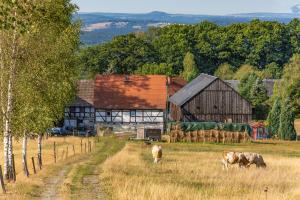
Country escapes: Germany's tranquil farm stays
Get that back-to-nature feeling with a rustic retreat surrounded by mountains and meadows.
-

Breaking bread: the history of the pretzel
How the pretzel found its name and saved a city from invasion.
-

Steins and summer days in Germany's beer gardens
From leafy watering holes in the middle of the city, to alluring wooden pagodas.
-

Germany’s most thrilling water parks
From chaotic, racer slides to calming saunas, there’s something for everyone.
-

5 magical places for forest tours in Germany
Connect with your senses and the natural world.
-

5 fun days out with your grandchildren in Germany
Take them on a factory tour featuring a glass car tower or pick berries outside Berlin.
-

Where to go in Germany for a sublime spa trip
The very best wellness escapes in Germany, a nation celebrated for its spa culture.
-
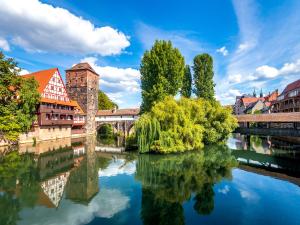
41 key German travel words and phrases to master
Make the most of your holiday in Germany by learning some key travel words and phrases.
-

48 hours in Berlin, Germany
A 2-day itinerary for visiting Germany’s cosmopolitan capital.





